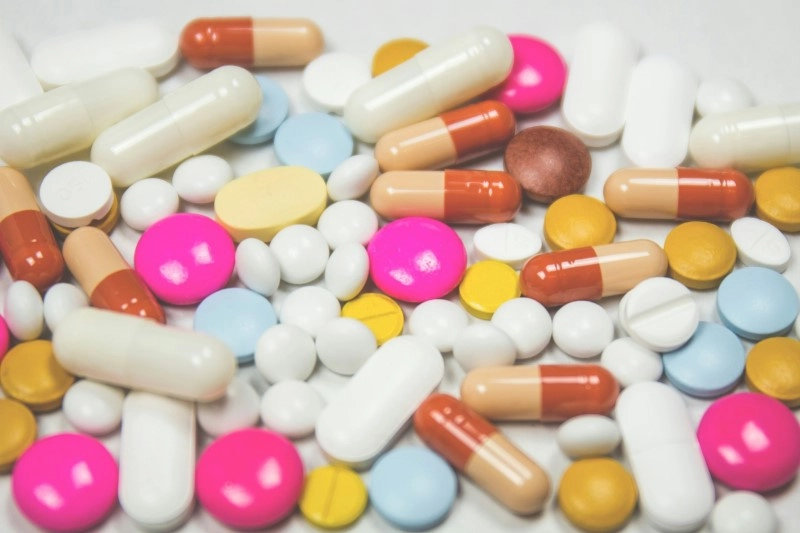- This topic is empty.
-
AuthorPosts
-
27/06/2025 at 15:53 #86637
Urolithin A (CAS No.:1143-70-0), a metabolite produced by the conversion of ellagitannins and ellagic acid by intestinal microorganisms, has become a popular raw material in the healthcare field. In this blog post, SACH, as a high purity active raw material manufacturing factory, will share the application of natural bioactive compound urolithin a in health care products, which has the effects of enhancing mitochondrial health, promoting autophagy, and exerting anti-inflammatory and anti-aging effects.
1. Biogenesis and Bioavailability of Urolithin A
Urolithin A (CAS No.:1143-70-0) is not directly consumed through the diet but is instead a secondary metabolite produced in the human gut. Its biosynthesis involves the microbial metabolism of ellagitannins and ellagic acid into various urolithins (Urolithin A, B, C, and D), with UA being the most bioactive and extensively studied. However, the conversion rate and efficiency depend heavily on an individual's gut microbiota composition, which poses a challenge to ensuring consistent bioavailability across a population.
To address this, synthetic and fermentation-based methods have been developed to produce UA at high purity levels. These methods enable the formulation of standardized health care products with consistent dosing, bypassing the variability introduced by individual microbiomes. Furthermore, advanced delivery systems, including liposomal encapsulation, cyclodextrin inclusion complexes, and nanoparticle carriers, are being employed to enhance the oral bioavailability of UA, which is naturally limited due to its hydrophobic nature.
2. Biological Functions of Urolithin A
2.1 Mitochondrial Health and Mitophagy Induction
One of the most remarkable features of Urolithin A (CAS No.:1143-70-0) is its ability to promote mitophagy—a selective form of autophagy that targets damaged or dysfunctional mitochondria for degradation. UA activates mitophagy through the AMPK and SIRT1 pathways and increases PINK1 and Parkin expression, which are key regulators of mitochondrial quality control. By rejuvenating mitochondrial function, UA enhances energy metabolism and cellular homeostasis, which is particularly beneficial in age-related conditions characterized by mitochondrial decline.
2.2 Anti-inflammatory and Antioxidant Activities
UA exerts potent anti-inflammatory effects by downregulating pro-inflammatory cytokines such as IL-6, IL-1β, and TNF-α through the inhibition of the NF-κB and MAPK signaling pathways. It also exhibits antioxidant properties by enhancing the activity of endogenous enzymes such as superoxide dismutase (SOD) and catalase and by scavenging reactive oxygen species (ROS). These attributes make UA highly relevant in the formulation of products targeting chronic inflammation and oxidative stress-related pathologies.
2.3 Anti-aging and Longevity-Promoting Effects
Preclinical studies have shown that Urolithin A extends lifespan in *C. elegans* and improves muscle function and endurance in rodent models. These effects are attributed to its mitochondrial-enhancing and anti-inflammatory properties. Additionally, UA has been shown to influence gene expression related to longevity, including the upregulation of FOXO transcription factors and sirtuins.
3. Clinical Evidence Supporting Urolithin A Supplementation
Multiple human clinical trials have evaluated the safety, bioavailability, and efficacy of UA supplementation.
* SAFETY: Phase I clinical trials have established the safety of orally administered UA up to 1000 mg/day, with no serious adverse effects reported.
* MUSCLE FUNCTION: In a randomized, double-blind, placebo-controlled study (MitoPure trial), middle-aged adults receiving UA supplementation showed improved muscle strength and endurance, attributed to enhanced mitochondrial function.
* COGNITIVE SUPPORT: Emerging studies suggest that UA may cross the blood-brain barrier and exert neuroprotective effects, although more robust clinical data are needed to validate these preliminary findings.
* METABOLIC HEALTH: UA supplementation has shown potential in improving markers of metabolic health, including insulin sensitivity and lipid profiles, likely due to its role in reducing inflammation and improving mitochondrial efficiency.
These clinical findings support the inclusion of UA in health care products intended to address age-related decline, muscle health, metabolic disorders, and systemic inflammation.

4. Applications in Health Care Product Formulation
4.1 Nutraceuticals and Dietary Supplements
UA is predominantly marketed as a nutraceutical, often formulated into capsules, tablets, or powders. The recommended daily dosage typically ranges between 250–500 mg. Premium brands are increasingly utilizing patented formulations to enhance bioavailability and stability, ensuring superior absorption and therapeutic outcomes.
4.2 Functional Foods and Beverages
UA can be integrated into functional foods such as protein bars, yogurt, and ready-to-drink beverages. However, stability during processing and storage remains a formulation challenge. Microencapsulation and pH-sensitive coating technologies are being explored to ensure UA's integrity in various matrices.
4.3 Dermatological Products
Topical formulations of UA are being investigated for their anti-aging and skin-rejuvenating effects. By reducing oxidative stress and promoting cellular turnover, UA-enriched creams and serums may improve skin elasticity, texture, and barrier function. Liposomal and emulsion-based delivery systems are commonly employed to enhance dermal penetration.
4.4 Sports Nutrition
Due to its role in improving mitochondrial efficiency and reducing muscle fatigue, UA is gaining popularity in sports nutrition products. Supplements aimed at athletes and physically active individuals may combine UA with branched-chain amino acids (BCAAs), creatine, or coenzyme Q10 for synergistic effects.
5. Regulatory Status and Safety Considerations
Urolithin A has received Generally Recognized as Safe (GRAS) status from the U.S. FDA, enabling its inclusion in food and dietary supplements. In Europe, it is classified under novel food regulation and is permitted for use upon notification and approval by the European Food Safety Authority (EFSA). The regulatory frameworks emphasize the need for high-purity preparations and robust safety data.
Key safety considerations include:
* Purity standards: Products must contain ≥98% pure UA to meet quality benchmarks.
* Source traceability: Synthetic and fermentation-derived UA must be traceable and free from contaminants.
* Population-specific dosing: While UA is safe for the general adult population, clinical data in pregnant women, children, and immunocompromised individuals are limited, necessitating caution.
Conclusion
Urolithin A (CAS No.:1143-70-0) represents a paradigm shift in the application of bioactive natural compounds in health care products. With robust scientific backing and increasing commercial viability, UA holds promise as a foundational ingredient in next-generation nutraceuticals, functional foods, and cosmeceuticals aimed at promoting healthy aging and improving mitochondrial health.
-
AuthorPosts
- You must be logged in to reply to this topic.